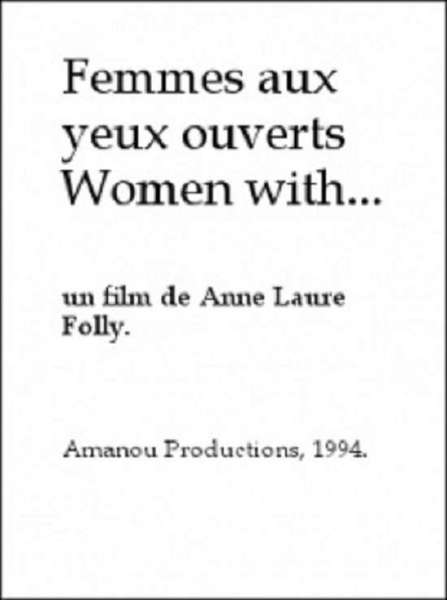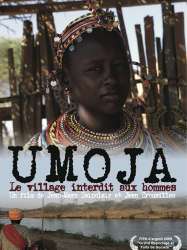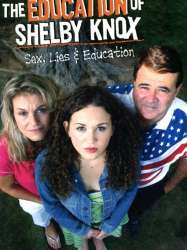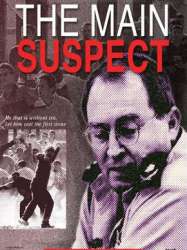Women with Eyes Open is a film of genre Documentary directed by Anne-Laure Folly
Women with Eyes Open (1994)

If you like this film, let us know!
Femmes aux yeux ouverts (Women with eyes open) is a Togolese documentary film directed by Anne-Laure Folly. It covers the lives of contemporary African women in Burkina Faso, Mali, Senegal and Benin.
Comments
Leave comment :
Suggestions of similar film to Women with Eyes Open
There are 2 films with the same director, 8952 with the same cinematographic genres, 8789 films with the same themes (including 10 films with the same 3 themes than Women with Eyes Open), to have finally 70 suggestions of similar films.If you liked Women with Eyes Open, you will probably like those similar films :

Women with Eyes Open (1994)
, 53minutesDirected by Anne-Laure Folly
Genres Documentary
Themes Films set in Africa, Feminist films, Political films
 , 52minutes
, 52minutesGenres Documentary
Themes Films set in Africa, Feminist films, Politique, Documentary films about law, Documentaire sur une personnalité, Political films
Ce documentaire raconte l'histoire d'un village kényan, Umoja. Pendant près de 30 ans, des centaines de femmes vivant à Umoja disent avoir été violées par des soldats britanniques dans le nord du Kenya. Accusées d'avoir apporté la honte sur leur communauté, elles se font battre et répudier par leur maris. Une poignée d'entre elles créent Umoja, un village interdit aux hommes qui devient le refuge des femmes samburu. Des hommes jaloux attaquent régulièrement le village et posent des problèmes à sa fondatrice Rebecca Lolosoli.

Mère-Bi (2008)
, 55minutesOrigin Senegal
Genres Documentary
Themes Films set in Africa, Films about writers, Feminist films, Films about journalists, Politique, Documentaire sur une personnalité, Documentary films about politics, Political films
Née à Sokone en 1926, Annette Mbaye d’Erneville, la mère du réalisateur William Mbaye, fut la première journaliste du Sénégal. Elle s’est très tôt sentie concernée par le développement de son pays. Militante de la première heure pour la cause de l'émancipation des femmes, elle est à la fois une pionnière et une anti conformiste. Elle a partagé sa vie entre la France, où elle a étudié, et le Sénégal, où elle est retournée en 1957, pressentant que le temps de l’Indépendance était arrivé.

The Education of Shelby Knox (2005)
Genres Documentary
Themes Films about education, Feminist films, Films about sexuality, Documentary films about politics, Political films
Rating72%





 , 1h7
, 1h7Origin Espagne
Genres Documentary
Themes Films set in Africa, Documentary films about politics, Political films
Morocco has spent more than 30 years denying the Saharans the right to their own life and land. In exile, the women are the pillar of their struggle; they keep the society together and keep up the fight and resistance. Their struggle, from abroad, from refugee camps, from their occupied land, shows the strength and force of the Saharan women. The "Tebraa" is the Saharan women’s song, be it of love or sorrow, and they sing when they are alone. It’s an intimate song. That’s where we have tried to go, to that place that no army can take away, that place full of pain and hope, of weariness and love, of struggle and desire.

The Main Suspect (2003)
, 1hDirected by Yaky Yosha
Genres Documentary
Themes Films set in Africa, Films about religion, Documentary films about law, Documentary films about war, Documentary films about historical events, Documentaire sur une personnalité, Documentary films about politics, Documentary films about religion, Political films, Films about Jews and Judaism

Echoes from a Sombre Empire (1990)
, 1h31Directed by Werner Herzog
Origin German
Genres Documentary
Themes Films set in Africa, Documentaire sur une personnalité, Documentary films about politics, Political films
Actors Werner Herzog
Rating71%





Ce documentaire a pour sujet le président de la République centrafricaine, l'empereur Jean-Bedel Bokassa.

The Door of Ceuta (2008)
, 1h50Origin Portugal
Genres Documentary
Themes Films set in Africa, Films about immigration, Documentary films about politics, Political films
Rating71%





Beginning with the 2005 violence at the Melilla and Ceuta border fences, Bab Sebta interviews people in four North African cities to explore why some people are willing to risk all to emigrate to Europe. Interviews took place in Tangier and Oujda in Morocco, and Nouadhibou and Nouakchott in Mauritania.

At the Green Line (2005)
, 52minutesOrigin Israel
Genres Documentary
Themes Films set in Africa, Films about religion, Documentary films about law, Documentary films about war, Documentary films about historical events, Documentaire sur une personnalité, Documentary films about politics, Documentary films about religion, Political films, Films about Jews and Judaism
 Connection
Connection